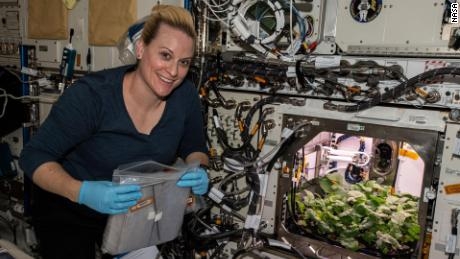NASA finds unknown bacterial strains on ISS, may help grow plants on Mars
Total Views |
Washington DC, March 17: US space agency National Aeronautics and Space Administration (NASA) has discovered three bacterial strains at the International Space Station that may help grow plants on Redd Planet.

According to the reports, the three strains have been called IF7SW-B2T, IIF1SW-B5, and IIF4SW-B5. The bacteria belong to the family of Methylobacteriaceae from different locations aboard the ISS across two consecutive flights. They are involved in nitrogen fixation and plant growth and can help stop plant pathogens. In other words, it could prove helpful in growing crops in space and perhaps on Mars.
Methylobacterium species are involved in nitrogen fixation, phosphate solubilization, abiotic stress tolerance, plant growth promotion, and biocontrol activity against plant pathogens. These three ISS strains were found to grow optimally at temperatures from 25 to 30°C, pH 6.0 to 8.0, and NaCl 0 to 1%.
Experts from NASA's Jet Propulsion Laboratory (JPL) believe the strains could help create the "fuel" needed for plant growth on Mars when humans eventually arrive.
Commenting on the discovery, Dr. Kasthuri Venkateswaran (Venkat) and Dr. Nitin Kumar Singh of NASA’s Jet Propulsion Laboratory, (JPL), says that the strains might possess “biotechnologically useful genetic determinants” for the growing of crops in space. Further experimental biology is needed to prove that it is a potential game-changer for space farming. The team suggests that to grow plants in extreme places where resources are minimal, isolation of novel microbes that help to promote plant growth under stressful conditions is essential.